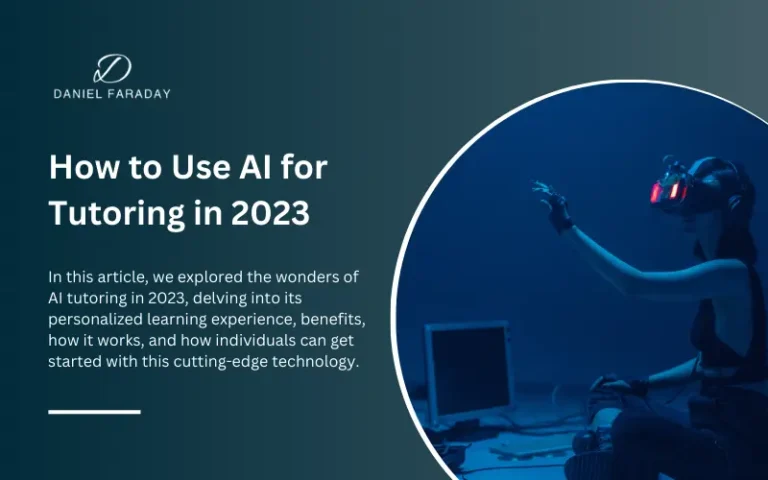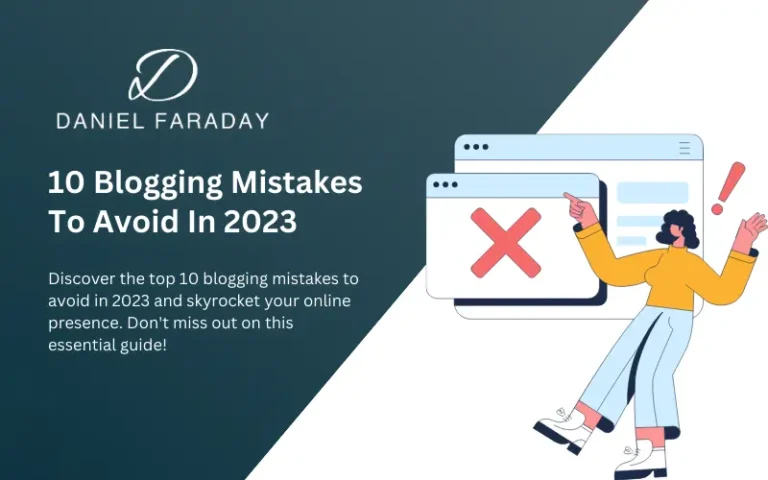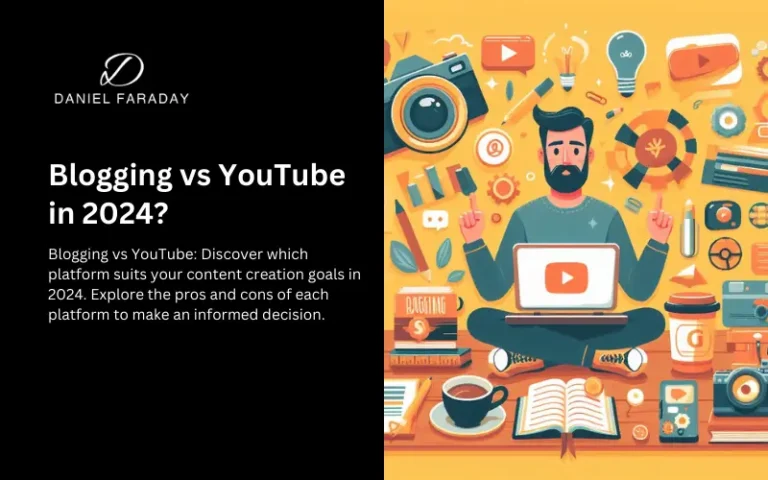The 5 best AI courses for bloggers

In today’s digital age, artificial intelligence (AI) is rapidly transforming the way we create and consume content. Bloggers, in particular, can benefit immensely from incorporating AI tools and techniques into their workflow. AI can help bloggers generate ideas, research topics, write engaging content, optimize their posts for search engines, and even automate repetitive tasks.
If you’re a blogger looking to take your content and workflow to the next level with AI, here are the five best AI courses you should consider:
Course 1: Profitable Blogging & Content Writing Creatively Or With AI
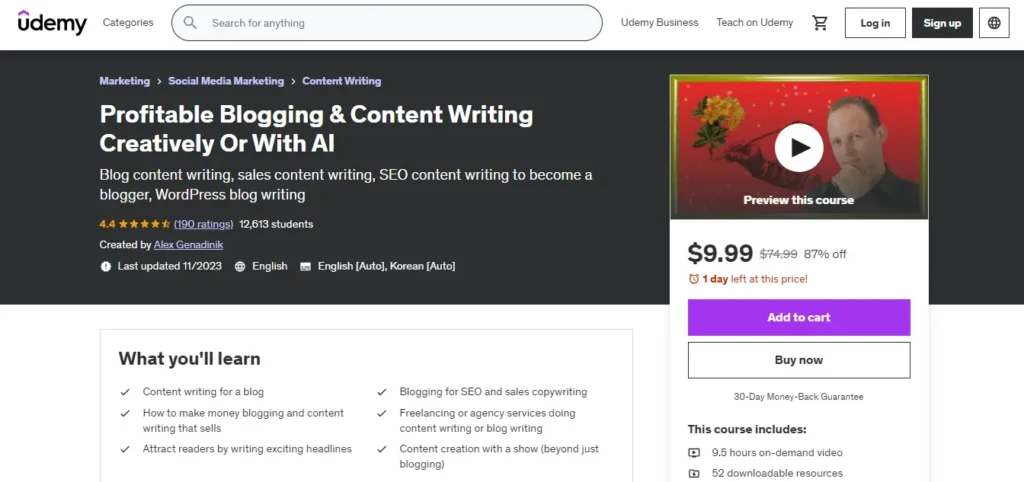
Alex Genadinik is the lecturer of this course and he has more than 750,000 students and 73,776 reviews on Udemy. This course is mainly about content writing. For learning this course, there are no requirements needed for you. This Content Writing and Blogging Course is a best-selling, top-rated course on Udemy.
Also, the top companies below offer this course to their employees.
- NASDAQ
- WordPress
- Box
- Netapp
- Eventbrite
What you can learn:
- Content writing for a blog.
- Blogging for SEO and sales copywriting.
- How to make money blogging and content writing that sells.
- Freelancing or agency services doing content writing or blog writing.
- Attract readers by writing exciting headlines.
- Content creation with a show. (beyond just blogging)
Who this course is for:
- New bloggers.
- New digital marketers.
Course 2: Super Charge Your Blogging With AI ChatGPT – Blog Like A Pro
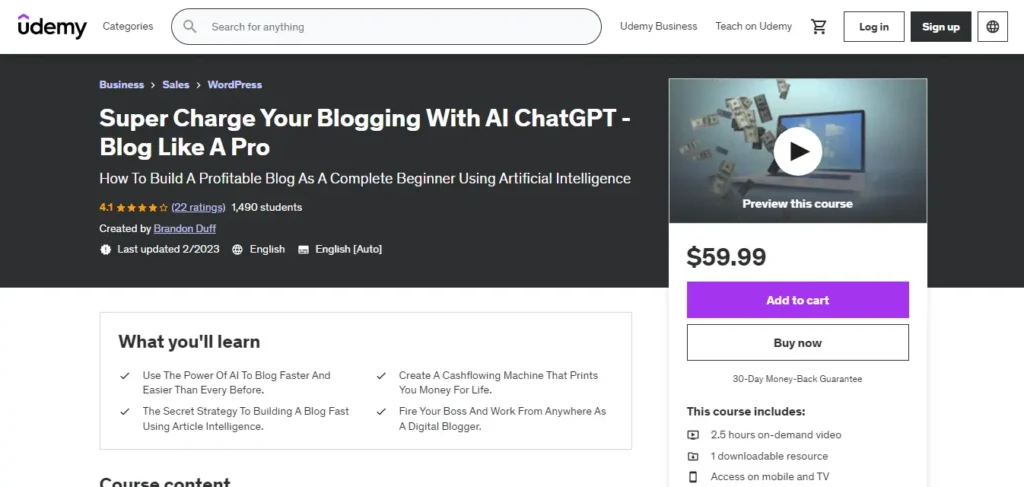
This course is taught by Brandon Duff. He has a total of 2,822 students on the Udemy. In this course, you can learn about Creating A Profitable Online Business With A Blog And Artificial Intelligence. For learning this course, No Tech Skills are Required. Briefly, this has 6 sections with 36 lectures. (2h 37m total length)
What you can learn:
- Use The Power Of AI To Blog Faster And Easier Than Ever Before.
- Create A Cashflowing Machine That Prints You Money For Life.
- The Secret Strategy To Building A Blog Fast Using Article Intelligence.
- Fire Your Boss And Work From Anywhere As A Digital Blogger.
Who this course is for:
- Complete Beginners Who Want To Make Money Online Through Writing.
- People Who Want To Use AI Technology To Blog Faster.
Course 3: Writing Blog Posts Using Artificial Intelligence (Ethically!)
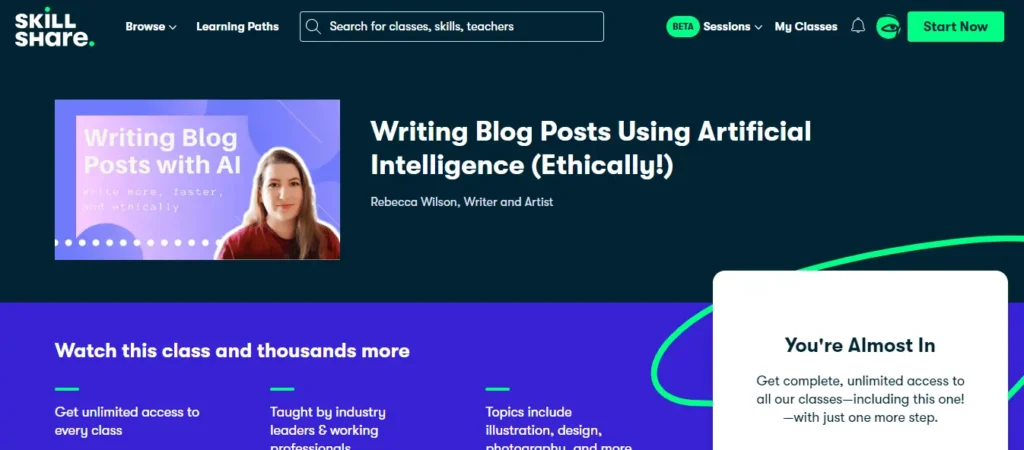
Rebecca Wilson is the teacher of this course. She is a Writer and Artist. Rebecca has a total of 2,102 students on the Skillshare. This course is mainly about Writing Blog Posts Using Artificial Intelligence (Ethically!). This is a Beginner level course, so there are no requirements to learn this course. You can find this course on Skillshare.
What you can learn:
- Background and Tool Options.
- Ethics and Use Cases.
- Generating Blog Topic Ideas.
- Create an Outline.
- Feeding Your AI Prompts.
- Editing and Rewriting.
- Other Uses.
Who this course is for:
- Beginners who want to learn how to write blog Posts Using Artificial Intelligence (Ethically!)
Course 4: Create Outstanding Posts with ChatGPT, Notion AI, and Canva – AI for Bloggers and Content Creators
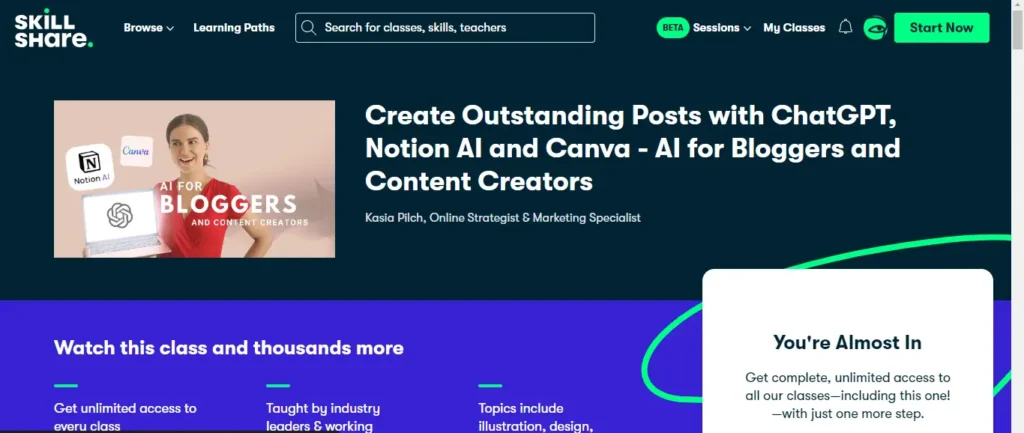
Kasia Pilch is the teacher of this course. She is an Online Strategist & Marketing Specialist. This course is mainly about creating outstanding Posts with ChatGPT, Notion AI, and Canva. This is a Beginner level course, so there are no requirements to learn this course. You can find this course on Skillshare.
What you can learn:
- How AI-powered tools work
- Which AI tools should you use for the best content creation results
- How to use AI tools in a safe and ethical way
- What makes a good ChatGPT prompt?
- The basics of prompt engineering
- How to level up your content creation process in 5 simple steps
Who this course is for:
- Beginners who want to learn about creating blog posts using AI tools.
Course 5: AI for Online Content Creation: Automating Workflows for Blog Posts, Videos, and Social Media
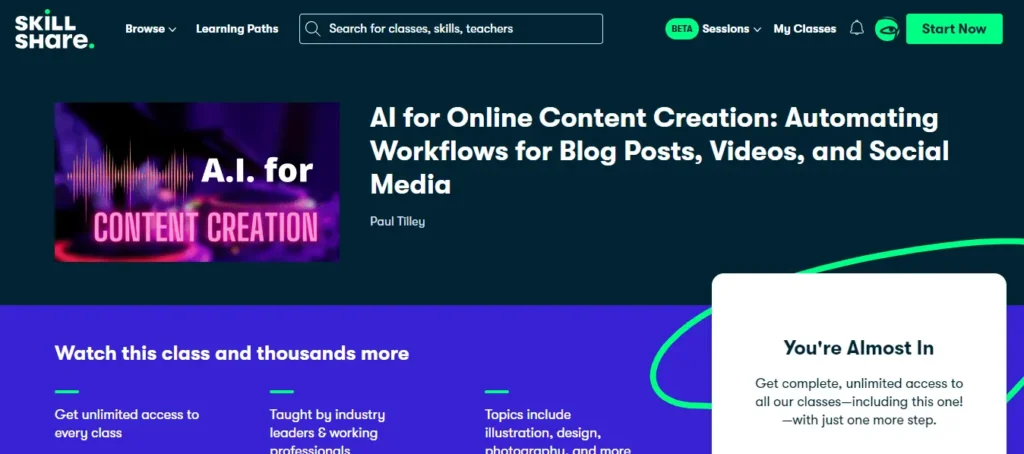
Paul Tilley is the teacher of this course. This course is mainly about Automating Workflows for Blog Posts, Videos, and Social Media. This is a Beginner level course, so there are no requirements to learn this course. This course is a short course with 8 sections. (23m total length)
What you can learn:
- Everything from using AI tools to create unique images to streamlining social media posts with AI.
- Create high-quality content efficiently and effectively.
- Freeing up more time to focus on creating more content.
Who this course is for:
- Beginners.
How to find the best courses?
With the vast array of online courses available today, it can be overwhelming to find the right one that suits your needs and learning style. Here are some tips to help you navigate the online learning landscape and discover high-quality courses that align with your goals:
1. Define Your Learning Objectives: Before embarking on your online learning journey, clearly define what you want to achieve through the course. Are you aiming to gain new skills, enhance your career prospects, or simply explore a topic of interest? Having clear objectives will help you narrow down your search and find courses that align with your aspirations.
2. Identify Reputable Platforms: Explore renowned online learning platforms that offer a diverse range of courses from reputable institutions and instructors. Popular platforms like Coursera, edX, Udemy, and Skillshare provide access to thousands of courses from top universities, companies, and industry experts.
3. Consider Course Structure and Delivery: Evaluate the structure and delivery method of the course to ensure it matches your learning style. Do you prefer self-paced video lectures, interactive exercises, or live online sessions? Choose a course format that suits your learning preferences and schedule.
4. Read Course Descriptions and Reviews: Carefully read the course descriptions to understand the specific topics covered, learning outcomes, and prerequisites. Additionally, check student reviews to gain insights into the instructor’s teaching style, course content, and overall quality.
5. Assess Instructor Expertise: Research the instructor’s background and qualifications to ensure they possess the necessary expertise to deliver the course effectively. Check their credentials, experience, and any relevant publications or certifications.
6. Utilize Free Introductory Courses: Many online platforms offer free introductory courses or sample lectures to allow you to preview the course content and teaching style before committing to a full enrollment. Take advantage of these opportunities to assess whether the course aligns with your expectations.
7. Consider Course Accreditation and Certifications: If you seek professional recognition or certification, verify whether the course is accredited or recognized by relevant industry bodies or professional organizations. This can enhance the credibility of your learning and potentially provide career advancement opportunities.
8. Explore Course Bundles and Discounts: Many platforms offer discounted pricing or course bundles that combine multiple courses related to a specific topic or skill area. Consider these options if you’re interested in pursuing a comprehensive learning path.
9. Seek Recommendations and Feedback: Consult with friends, colleagues, or mentors who have taken online courses to gather their recommendations and feedback. Their insights can provide valuable perspectives on different platforms and course offerings.
10. Engage with the Learning Community: Actively participate in online forums, discussion groups, or community events related to the course topic. Engaging with other learners can enhance your understanding, provide support, and offer opportunities for collaboration.
By following these tips, you can effectively navigate the online learning landscape and discover high-quality courses that empower you to achieve your learning goals and advance your professional or personal development. Remember, continuous learning is an ongoing journey, and online courses provide a valuable tool to expand your knowledge and skills.



